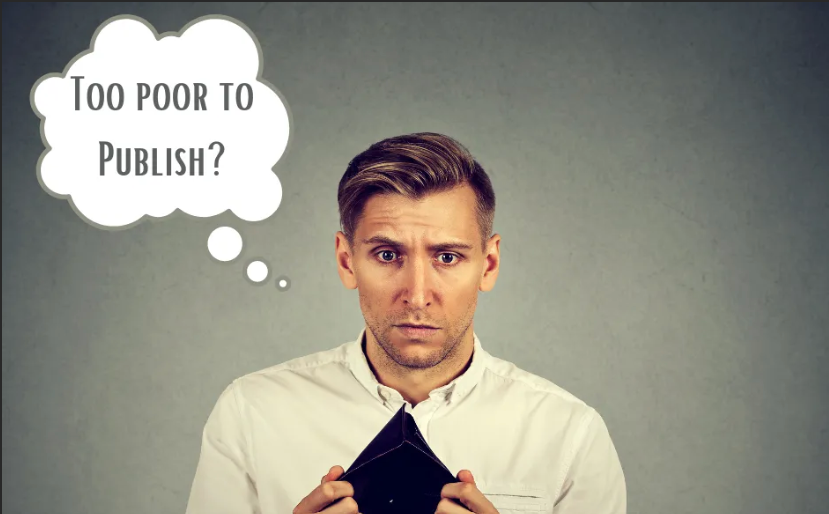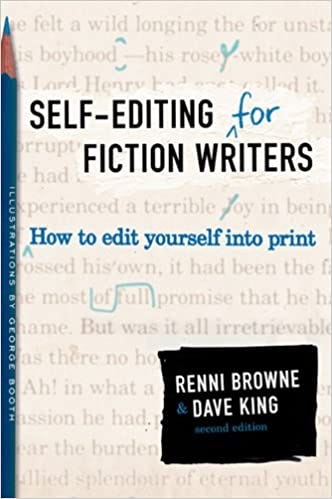Editing Too Expensive? How to find an editor in your budget

Self-publishing was supposed to remove the gatekeepers from publishing.
It was supposed to level the playing field and let authors publish their work and find readers, even if they didn’t “know the right people.”
So why are self-published authors being told that in order to “do it right,” they need to recruit five different paid editors before they should publish their book?
That’s gatekeeping on another level, and I’m not fond of it.
In the last week, I’ve seen two outrageous examples of this kind of cost creep targeted at indie authors.
The first is John Palladino, an indie author who just had a wildly successful launch of his fantasy novel The Trials of Ashmount, something for which he should be very proud. But I was gobsmacked to see he paid around 8 thousand dollars to edit his book (which comes in at around 75k words).
Obviously, he’s making good money on his release. But he still overpaid.
The other example was Tamsin, an aspiring author who recently completed her Nanowrimo challenge. The problem? At the finish line, Nanowrimo gave her an estimate of what it would cost to have her book edited.
In the estimate, they included five (!!) levels of editing which, for her 100k word book, would run upwards of 6 thousand dollars. Needless to say, she felt disheartened about the possibility of being able to “properly” have her book edited. (Update @tamsinbluewrites has gone private)
@tamsinbluewritesIdk man it just feels like the cards are stacked against you.
Hear me when I say this.
I, a person who earns my money editing books, am telling you that John’s 8 thousand and Tamsin’s 6 thousand are both way, WAY too much.
For traditional publishers with a full staff, these multiple rounds of editing makes sense. They have staff to accommodate it. Most indie authors, particularly new ones, do not.
If you can afford a developmental edit, separate line edit, proofreader, and typesetter, that’s marvelous. But no matter what type of book you are writing, you don’t need all of them.
The key is to look at your level of writing expertise, your genre, and your ideal reader’s expectations and make a calculated decision on where your editing funds should go.
The Editing you NEED
If your budget is tight and you have to make sacrifices, here is my recommendation for the minimum required amount of editing.
For new authors, or those who are new to book-length works: I recommend a Developmental Editor AND a proofreader.
OR
Trusted beta readers AND a proofreader
For experienced novelists in a new genre: I recommend beta readers or a paid critique AND a line edit
For experienced novelists: A line edit should do
For hotshot authors with a community of authors to peer review with: Just a proofread
Editors vary in their service, but I recommend finding a developmental editor that includes a line edit in their service.
Pricewise, they also vary. For a 100,000-word book, I would charge $2500, and that includes a line edit as well. Add to that a final proofread and you’re probably looking at $3000 total.
This is a reasonable amount in general, but that doesn’t mean you can afford it.
If that’s the case, see what options your editor offers:
- Do they offer a buy-now-pay-later option like Klarna or Afterpay?
- Do they allow you to submit in small sections?
- Are they willing to only edit part of the novel?
The majority of the big, sales-ruining mistakes are often found at the beginning. That means if you only have the first 10k-20k words of your novel edited, the editor will be able to point out the big issues, giving you the needed fuel to perhaps correct the rest yourself.
Obviously, this is less thorough. There may be errors or other elements that get discovered after you hit publish. Some authors prefer to wait until they can get the money for the full editing experience.
Fair enough. The point is, you should have a choice. And that choice shouldn’t rely on your ability to cough up the price of a used car.

There’s no reason to sit on a manuscript for years when it could be earning you money. Polish your book with the help of the professionals you can afford. Then get started on your next book!
Check out the Nonsense-Free Editor's editing services and prices.
